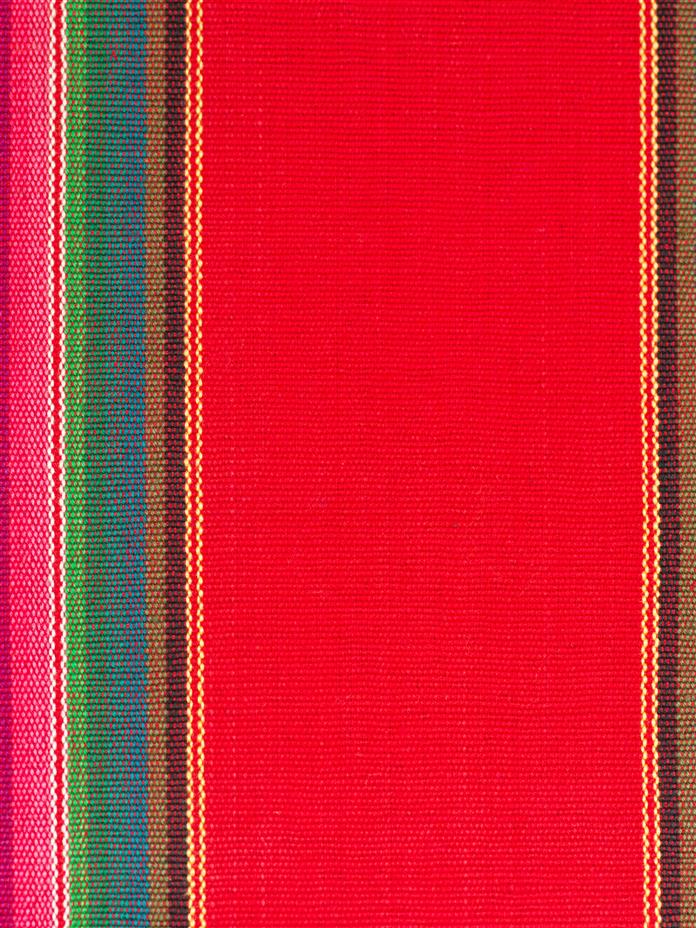
Tap to Read ➤
Natural Expectorants
Marian K


Apart from taking an over-the-counter medication, following natural remedies can also help minimize the congestion and inconvenience caused by cough, cold and other respiratory problems. The use of natural expectorants can certainly work wonders. Some of the common expectorants are presented in the following write-up, take a look...

Did You Know..
Ephedra, known as Ma Huang is an ancient Chinese herbal remedy for cough, that has been in use for over 5,000 years. Shennong, the father of Chinese herbal medicine was the first to taste this herb and make it a key ingredient in over hundred Chinese herbal medicines for respiratory problems.

An expectorant is a medication that helps cough up mucus and other material from the lungs, bronchi, and trachea. It does this by thinning the mucus that blocks the air pipes leading to the lungs. The thinned mucus is easier to cough up.

While people often mistakenly think that all cough medicines are expectorants, in reality only some are expectorants while others are suppressants. Suppressants prevent coughing and are useful for a dry hacking cough. By minimizing coughing, they provide comfort and facilitate better sleep.

Common Expectorants

Steam
Almost every doctor will recommend steam inhalations, that will loosen the mucus and help you cough/blow it out. To inhale steam, you can make use of a vaporizer; use it twice a day for better results. Alternatively, taking a hot shower also works. However, if you feel too ill to have a shower, then pour some hot water in a large vessel, and bend over it. Cover your head and the pan with a towel to create a 'steam room' environment, and gently breathe in the steam. Do not be too close to the vessel or you might get a steam burn.

Essential Oils
Eucalyptus oil is another effective natural expectorant. Add a few drops of it to the water you will be using for steam inhalation. Apart from that, dab some onto a handkerchief and sniff it through the day. Certain aromatherapy oils such as cypress oil and juniper oil also work as natural remedies, and can be used for inhalation.

Water and Other Fluids
The reason people are advised to drink plenty of water when having a cough or cold is, that it helps thin the mucus, and lets it out of the body easily. It also keeps the airways moist, thus reducing irritation. Along with water, hot tea with ginger/lemon and honey soothes the throat and may also help thin down the mucus.

Herbal Expectorants

Note: All the following herbal expectorants are absolutely safe when used as per expert advice and in prescribed amounts.

Angelica
The root of this herb is useful to treat chest congestion. It is stimulating and warming for lungs. It helps loosen the mucus, thereby alleviating the congestion. The recommended use is a tincture of the root or leaf, added to boiling water to make tea.
Caution: Its use is not recommended for pregnant women because it induces menstrual discharge. Other than that, there are no side effects reported as such.
Caution: Its use is not recommended for pregnant women because it induces menstrual discharge. Other than that, there are no side effects reported as such.

Horehound
It is a natural expectorant, that can be consumed in the form of cough drops. The compound marrubiin present in it stimulates bronchial secretions and helps clear the congestion.
Caution: It is not recommended for pregnant and breastfeeding women, and infants. Excessive use of horehound can also increase the risk of irregular heartbeats. Long-term use of the herb may lead to high blood pressure.
Caution: It is not recommended for pregnant and breastfeeding women, and infants. Excessive use of horehound can also increase the risk of irregular heartbeats. Long-term use of the herb may lead to high blood pressure.

Licorice
Licorice has been in use since ancient times for treating dry cough, asthma and allergies. Glycyrrhizin is its main constituent that helps loosen the phlegm and cough it out from the body. This clears the congestion in the chest and provides relief.

Licorice roots contain the glycrrhizia compound; a natural cough suppressant that prevents coughing, pain and irritation associated with it. Licorice is available in the form of candies, tinctures, capsules, tablets and as whole.

Caution: Although very rare, allergic reactions like swelling on tongue, lips or face may result from the use of licorice. Furthermore, overdose may cause headache, high blood pressure, and heart problems.

Thyme
Thymol is a key ingredient in the oil of thyme, which is one of the most powerful expectorants for treating cough and cold, sore throat, and acute bronchitis. When used in combination with sage in steam inhalations, it helps clear the mucus and relieve congestion. Given its antispasmodic qualities, it is commonly used in cough syrups.

Caution: Use of thyme for an extended period can cause upset stomach, headache, and dizziness. The intake of concentrated thyme oil is strictly prohibited since it is toxic. Pregnant and breastfeeding women should consult their doctor before using thyme in any form.

Anise Hyssop
Essential oils of anise hyssop bear expectorant properties. Herbal tea can be prepared by crushing the seeds of this herb and steeping them in hot water. Stir in two teaspoons of dried seeds to one cup of boiling water, and let the seeds seep in for ten minutes. Then strain and drink the tea when cool. This tea is one of the best chest congestion relievers.

The oils in anise hyssop are believed to be beneficial for mild respiratory problems.
Caution: The essential oil contains a compound called pino-camphone that can cause convulsions and seizures when consumed in excess. Medical advice is essential before using it for pregnant women and children.
Caution: The essential oil contains a compound called pino-camphone that can cause convulsions and seizures when consumed in excess. Medical advice is essential before using it for pregnant women and children.

Peppermint
It is believed to be one of the most instant, though temporary, congestion relievers amongst all natural expectorants. Menthol, a key compound present in peppermint oil, helps clear the respiratory tract. Because of its ability to provide instant relief, menthol is used as a key ingredient in almost all cold rubs.

Caution: When using peppermint oil for chest massage, it should be diluted with some other carrier oil or else it can cause skin irritation. Also, do not use this essential oil for babies.

Foods with Expectorant Properties

Expectorants do not always have to be in a liquid form. Hot chili peppers, horseradish or other spicy foods also help loosen and expel mucus from the body. Onion is the best example of an expectorant food. Just chopping an onion can trigger thinning of phlegm and clearing the airways. Using raw onion in food can also serve the purpose.

You can mix a few onion slices with honey to improve the taste; store the mixture in a jar. Shake the mixture at regular intervals, and when congestion occurs, have 1-2 tablespoons of the same. This will provide immediate relief from congestion.

Your diet plays an important role in managing nasal and chest congestion. Hence, apart from using the natural expectorants mentioned above, avoid foods that increase the production of mucus, such as dairy products, meat and fried foods until you feel better. While sleeping, elevate your head by resting it on a pillow to allow your sinuses and nasal passages to drain well.

Disclaimer: This story is for informative purposes only, and should not be used as a replacement for expert medical advice.